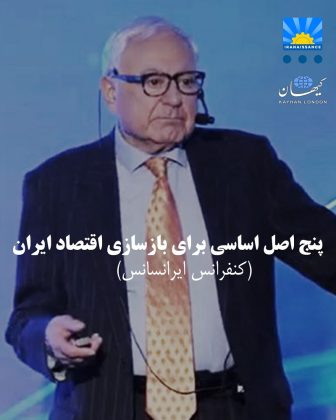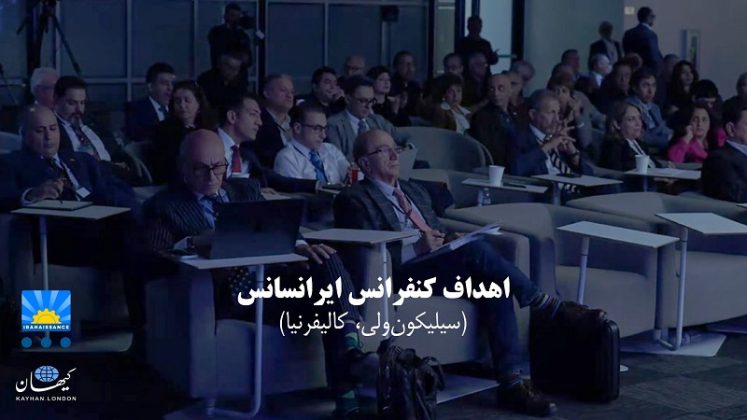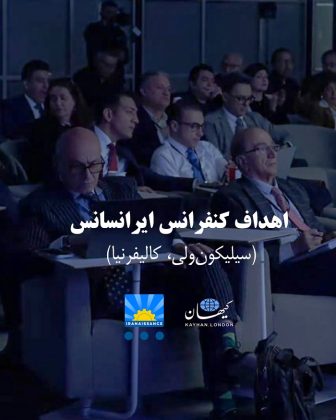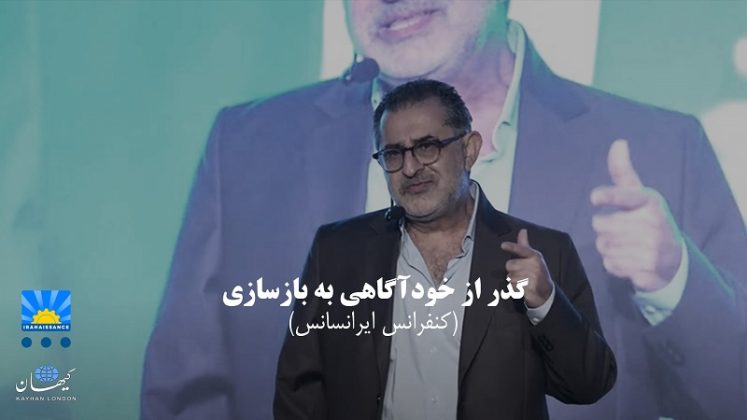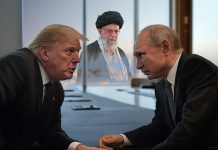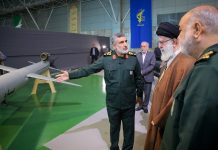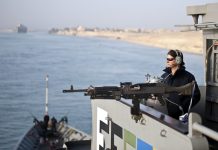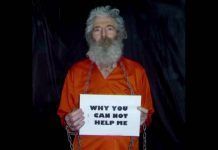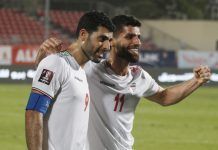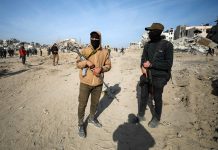By Kayhan Life Staff
A two-day “Iranaissance” conference earlier this month in Silicon Valley brought together over 40 specialists, entrepreneurs, investors, and economic activists. The event provided a platform for economic experts to share their ideas, experiences, and successful models for advancing Iran’s reconstruction efforts.
View this post on Instagram
On the first day, Saeed (Sid) Mohaseb, Shahriar Ahy, Nadereh Shamloo, Sara Bazoobandi, Mehrdad Ariannejad, and Shayan Niknejad delivered keynote speeches.
The first speaker at the conference, Sid Mohaseb, an entrepreneur and investor, discussed “The Journey from the Consciousness of the Mind to Reconstruction.”
Having served as a dedicated advisor to startups, companies, and investment holding firms for many years, Mohaseb said: “The opportunity for reconstruction starts with self-awareness of the mind. It is the time for construction.”
“We are confronted with many challenges in rebuilding Iran,” Mohaseb remarked. “Our future is interconnected, and we face a range of opportunities, decisions, risks, and issues, such as the state of financial and urban infrastructure, poverty, embezzlement, the education system, executions, injustice, and environmental concerns-what we can call a ‘shared pain.’”
“Each day, from dawn to dusk, offers a chance for rebuilding and improvement. Our differences strengthen the very foundation of our growth and progress. Reconstruction requires effort, and effort alone is not as effective without collaborators,” Mohaseb asserted. “Ultimately, we must say, ‘Join me, my friend, for this shared struggle cannot be overcome alone.’”
Shahriar Ahy, a political activist and economic advisor, discussed “the most effective reconstruction strategies from other countries,” the “importance of free economic zones,” and the need to establish the “Iran Reconstruction Fund.”
In his opening remarks, Ahy said: “We are here to share our experiences, successes, and failures with the people of Iran. Our goal is not to seek power or control, but to serve.”
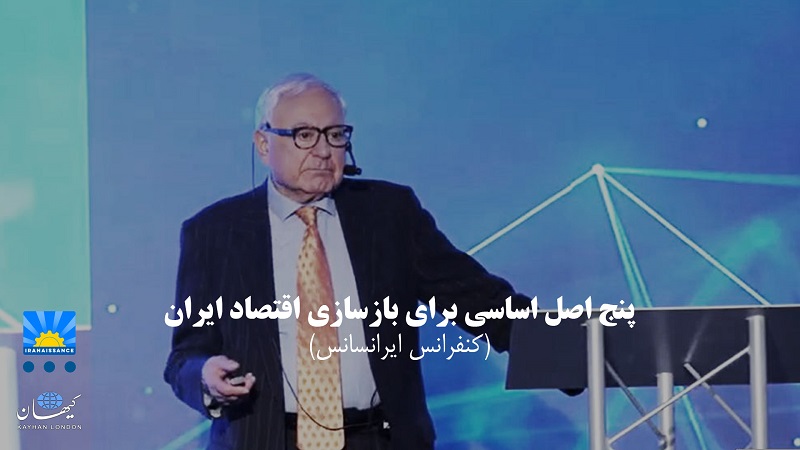
Ahy argued that sustainable development hinges on secular governance, which can only be achieved by adhering to common sense, acknowledging natural rights, and recognizing the rights of citizens on a national level.
Reflecting on his experiences during the reconstruction of the Baltic countries after the fall of the Soviet Union, Ahy noted that there was a strong desire for change. He listed five key principles to facilitate the reconstruction process, adding: “If these principles were enacted into law and truly embraced, we could unlock global investment opportunities for the Baltic countries.”
Ahy outlined these key principles: “Financial transparency, which serves as an anti-corruption measure for the economy, joining the Financial Action Task Force (FATF), ensuring investment protection, adopting the Multilateral Investment Guarantee Agency (MIGA) standards, promoting budget transparency by embracing International Financial Reporting Standards (IFRS) which clarifies whether Iran’s capital benefits Hezbollah or the Iranian people, providing impartial and fair arbitration for dispute resolution, and adhering to the International Labor Organization (ILO) regulations, which emphasize the dignity of workers. This framework encompasses the dignity of investment, the left’s commitment to workers’ rights, economic transparency, government accountability, and justice through fair arbitration.”
FATF is an intergovernmental organization established in 1989 at the initiative of the G7 to develop policies to combat money laundering and the financing of terrorism. In February 2020, the FATF placed Iran on its blacklist for failing to implement the Palermo Convention, along with the FATF’s recommendations for combating money laundering (AML) and terrorist financing (CFT). This measure restricted Iran’s access to the international banking system.
The Multilateral Investment Guarantee Agency (MIGA) is part of the World Bank Group. It safeguards investors and lenders against political risks and promotes foreign investment in developing nations.
IFRS are accounting guidelines established by the IFRS Foundation and the International Accounting Standards Board (IASB). These standards provide a consistent framework for presenting a company’s financial performance and position, ensuring that financial statements are clear and comparable across different countries.
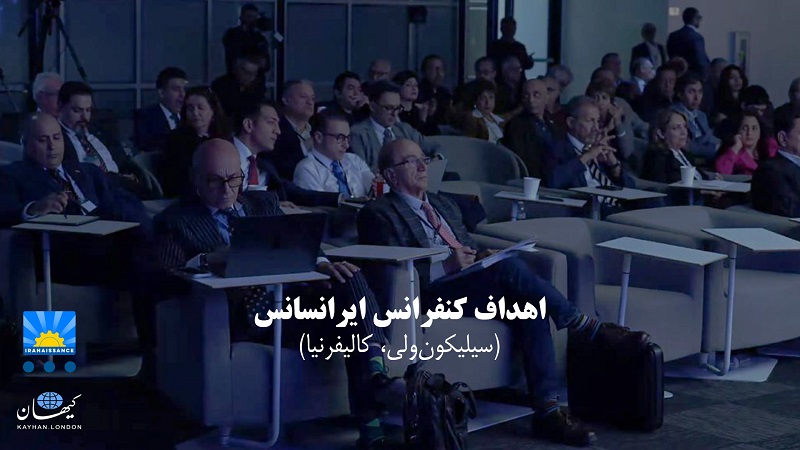
ILO is a United Nations agency dedicated to promoting social justice and fair working conditions for everyone. Its mission focuses on advancing human and labor rights while ensuring all work is safe and exploitation-free.
Nadereh Shamloo, a former World Bank advisor, was the third speaker at the conference, addressing “immediate stabilization and economic empowerment.”
In her speech, Shamloo examined the decline of Iran’s economic strength from 1980 to 2020, comparing it to the economic progress of Turkey and South Korea. Both countries were economically weaker than Iran in 1980, yet over four decades, they have surpassed Iran in economic power.
Shamloo highlighted several key prerequisites for Iran’s reconstruction, including “ensuring national security,” “building public trust and effective institutions,” “promoting political stability and peacefully resolving conflicts,” and “the role of civil society.”
According to data shared by Shamloo, the International Monetary Fund (IMF) states that the country’s per capita income could be 40 percent higher if women were actively involved in Iran’s economy.
She contends that “current laws in Iran hinder women’s participation in business.” Shamloo emphasized that a key priority for Iran’s future should be to absorb the surplus workforce and generate employment opportunities, particularly for the youth.
Shamloo argued that over the past 45 years, corruption has spread extensively and deepened in Iran, likening it to a “cancer of corruption” that can only be addressed through new laws and adherence to international standards.
She also highlighted that, over the last four decades, the income of Iran’s middle class has significantly declined, income inequality has risen, and economic growth has sharply slowed.
Sara Bazoobandi, a research fellow at the German Institute for Global and Area Studies (GIGA) and a researcher at the “Security Policies Institute” at the Christian Albrecht University of Kiel (CAU), was among the speakers on the first day of the conference. Her presentation focused on “mitigating economic and political risks in Iran’s reconstruction.”
Bazoobandi highlighted the critical need to attract investment, emphasizing that democratic accountability and bureaucratic efficiency are equally essential. She examined Iran’s economic and social conditions through various indices (performance indicators), including the “Legatum Prosperity Index,” and discussed the detrimental effects of corruption, economic opacity, limited individual and social freedoms, and the erosion of social capital in the country.
She emphasized that, according to the prosperity index, nations like Egypt, Cambodia, and Tajikistan are outperforming Iran.
The Legatum Prosperity Index is an annual ranking created by the Legatum Institute, an independent educational charity partly funded by the private investment firm Legatum. This index evaluates countries based on various factors, including wealth, economic growth, education, health, personal well-being, and quality of life.
The latest “Index of Economic Freedom” report, published by the Heritage Foundation, a conservative think tank based in Washington, D.C., ranked Iran among the world’s most restricted economies. The report notes that Iran scored 41.2 out of 100, placing it 169th out of 184 countries.
Bazoobandi also highlighted Iran’s score in the 2024 Heritage Foundation report, noting a significant drop in the country’s “Economic Freedom Index,” which has now fallen below that of Egypt and Saudi Arabia.
The Heritage Foundation defines economic freedom as the basic right of individuals to control their work and property, and it ranks countries each year based on this measure.
Reducing risk is not only about offering coverage to appeal to foreign investors; it also involves fostering an environment where Iranians can have a more stable, optimistic, and confident view of the country’s social and economic future every day.
Mehrdad Ariannejad, president of the Tirgan charitable organization in Canada, was another speaker at the conference, who said: “Rebuilding Iran requires effort and shared determination. It is essential to foster connections among Iranians and, above all, to instill hope. Events like the Tirgan cultural festival play a key role in helping Iranians feel a sense of belonging to their homeland. Culture and identity are powerful forces that unite Iranians around the world.”
“For non-Iranians, fostering a positive image of Iran and its people can play a key role in the country’s reconstruction and shift global perceptions. Emphasizing Iran’s ancient civilization can draw investment, positioning the country as a cultural center,” Ariannejad explained. “Tirgan can boost tourism to Iran and offer a chance to showcase Iranian cuisine, which is one of the finest globally. Together, these efforts help strengthen connections among Iranians worldwide and create opportunities for foreign investors.”
“Among second- and third-generation Iranians abroad, active traders, university professors, and politicians must maintain a connection to their homeland. Cultural festivals can serve as this bridge, fostering improved political and economic relations between Iran and the outside world,” Ariannejad added.
Another speaker, Shayan Niknejad, an energy management expert, shared insights into the energy outlook, opportunities, capabilities, and mid-term strategies for building resilience and stability.
In his opening statement, Niknejad said: “Iran must attract $1 trillion in investment over the next decade to generate jobs, rebuild infrastructure, develop industries, and secure economic stability for its citizens.”
Niknejad highlighted how Iran’s oil and gas resources and the optimization of related industries could play a crucial role in the country’s reconstruction. He also emphasized the importance of revitalizing these sectors and outlined ways to establish legal frameworks to make Iran more appealing to investors.
Niknejad emphasized the importance of implementing modernization plans to enable job creation in the medium term by first stabilizing the economy and then the currency exchange rate. He identified “revitalizing the energy sector and optimizing resources for greater productivity” as his proposed strategy’s key approach to generating revenue. In an interview with Kayhan Life on the sidelines of the conference, Bardia Hariri, spokesperson for the Iranaissance conference, said: “Our goal at this conference is to support the revival of Iran’s economy by collaborating with experienced specialists, successful investors, and experts and managers within the country. We envision an Iran where the middle class thrives, young people can afford homes, healthcare workers and laborers in demanding jobs, like miners, are compensated, businesses thrive, and there are no power outages or gas shortages.”
The second day of the Iranaissance conference, on Feb. 23, focused on specialized panel discussions and brainstorming sessions designed to enhance collaborations and establish active task forces across various economic and legal sectors.

